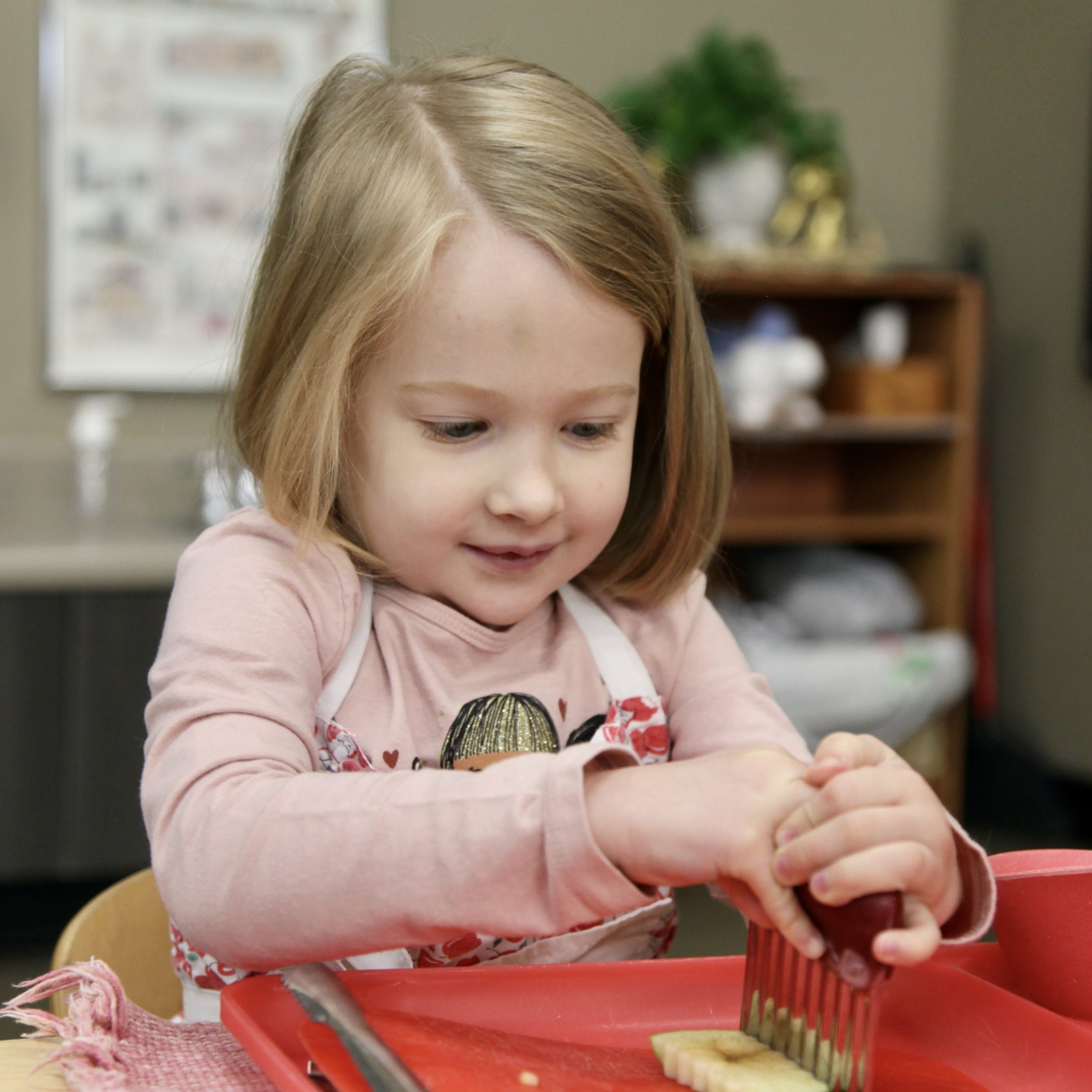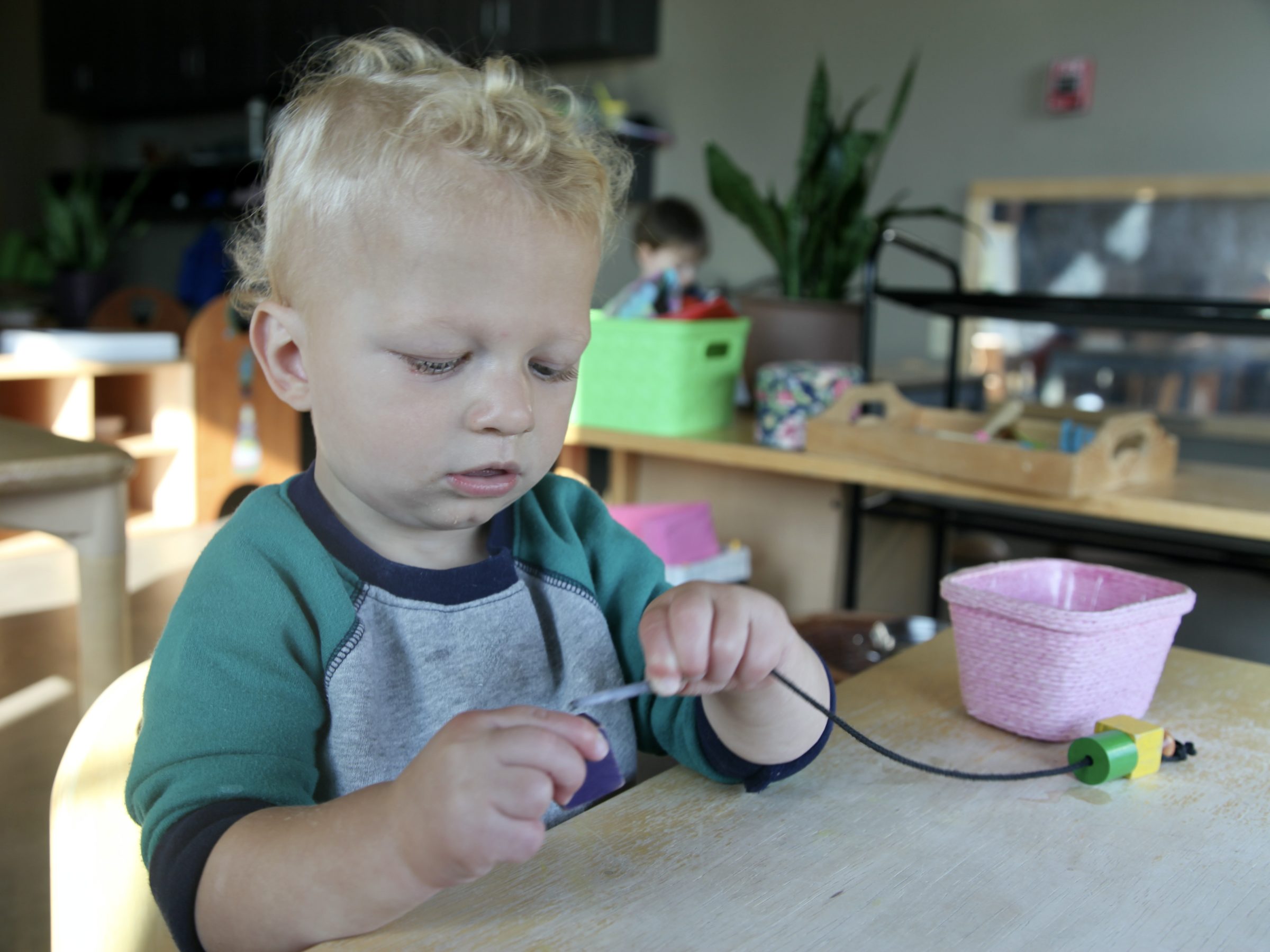Montessori Kindergarten
Thoughts & Reflections
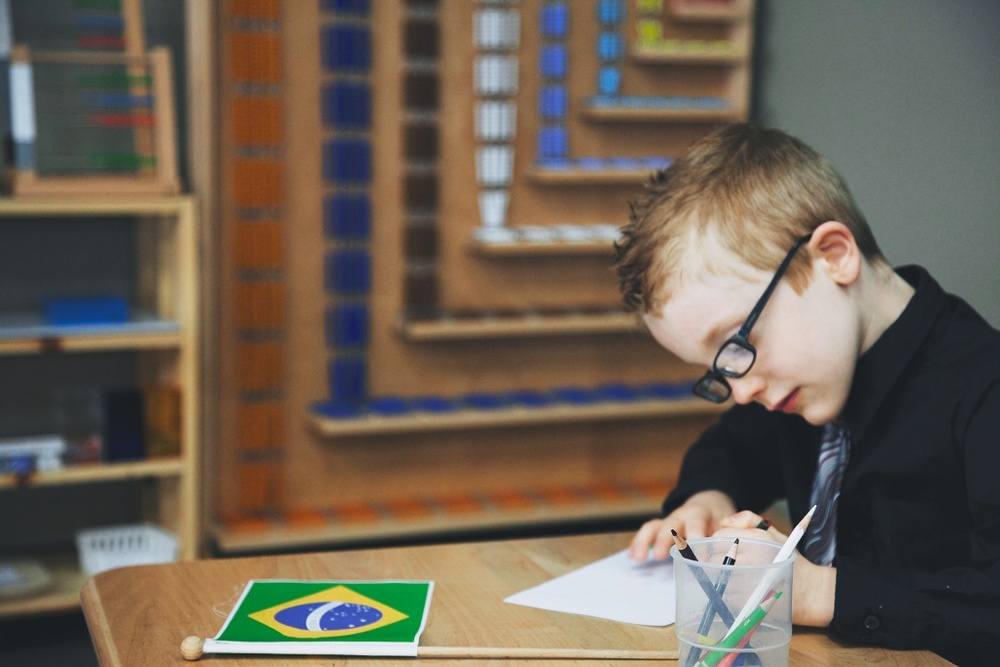
Over the weekend, we held a parent education workshop on the Importance of the Kindergarten year in Montessori. After some really fruitful, engaging conversations with parents, we decided to put together a few of our notes from the discussion. More than anything, we wanted to share with you some of the many wonderful points that were raised. We really want to stress that we feel strongly that this is a personal decision, and in no way are our comments meant to pressure families. Our intention is merely to present the information.
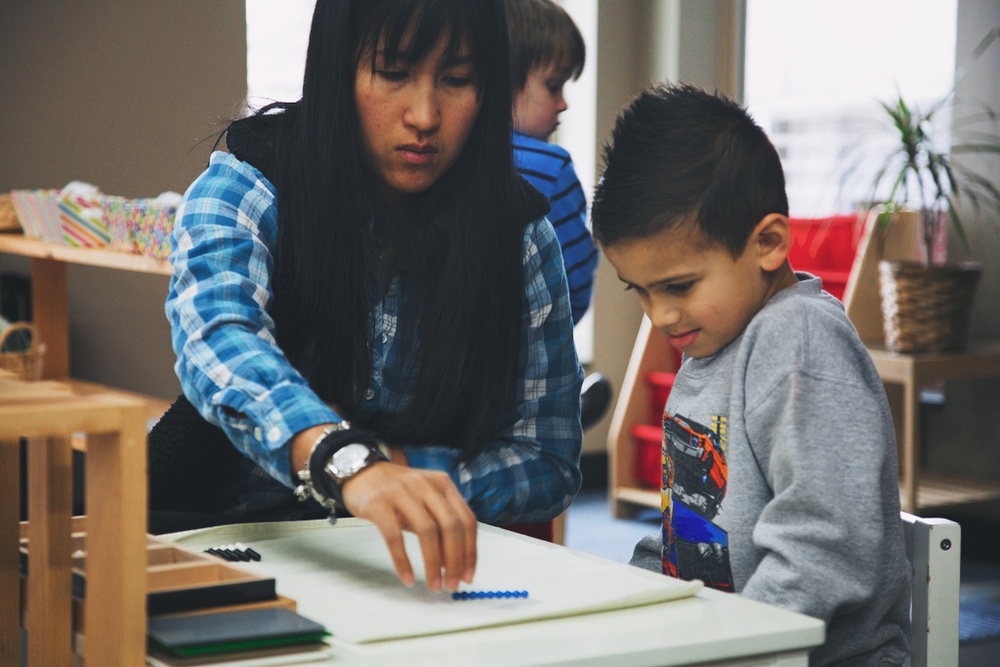
The discussion was primarily centered upon the benefits of staying in the Montessori environment for the Kindergarten year, without trying to negatively differentiate Montessori from public or private school alternatives. [As a side note, Baan Dek does not currently have an elementary, but it’s something that we’re actively exploring as we continue to grow.]
With the above in mind, we pointed out that Montessori, with a mixed-age classroom, was specifically designed to accommodate children between the ages of three to six years old. This isn’t an arbitrary age classification: it’s based on the developmental needs of children. As you may have heard us say before, the main idea is that everyone learns differently and at their own pace, so just because you are three doesn’t mean that you are like every other three year old.
What is remarkable about this experience is that when you enter Montessori, you are the youngest. You turn to your older peers to help you with your tasks and with your daily activities. The older students serve as your mentors and role models. Of course, when you reach the Kindergarten age, you now become the leader, remembering exactly what it was like to be in the position of the youngest student in the classroom.
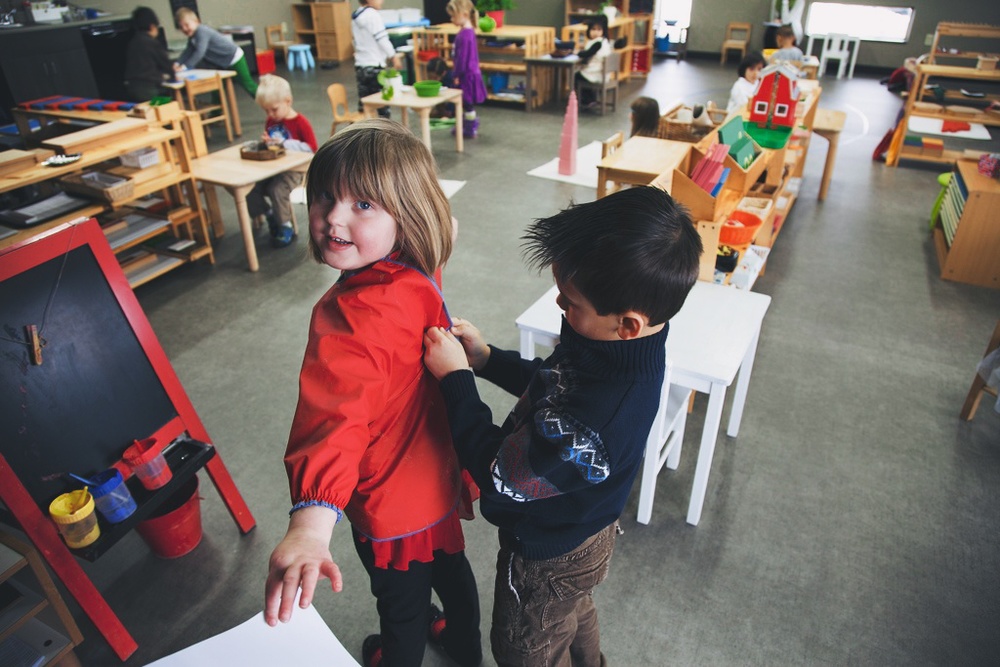
What this model fosters is a method of collaboration as opposed to competition. Instead of children working on the exact same task at the exact same time with peers their exact same age, Montessori allows children to work independently, at their own pace, following their own interests. Children receive help and support from their fellow classmates. In Montessori, it’s okay to help someone out, because you’re not competing against each other, you are competing against yourself.
Academically, the Montessori classroom was created to accommodate a spectrum of interests and abilities. It wasn’t designed to teach to the median. It was designed to teach to the individual. With a broad range of capabilities, the later Montessori math work, for example, is actually the equivalent of a third grade pubic school education. Needless to say, this doesn’t mean that every child will reach that level, but the structure exists in case they do.
Academics, of course, are important, but Montessori is predicated on an entirely different set of assumptions. Academics are not the sole focus. They are the outcome of careful preparation. Which is to say, in Montessori, we focus on the total experience of the child. In a phrase: we believe that social success will lead to academic success. If a child is happy and wants to learn, they will learn. You don’t need to force them. We’re all born with a sense of curiosity. We just need the space, or what Montessori called the “prepared environment,” to follow our interests.
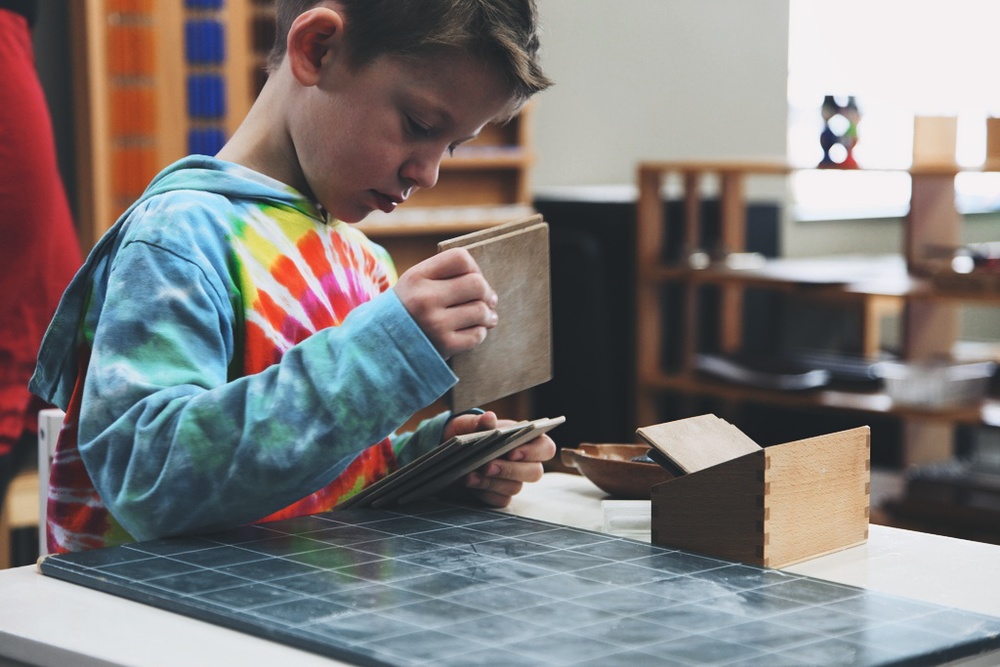
After a short conversation on the highlights, or the positive benefits of why the Montessori Kindergarten year is important, we received a number of questions. We thought it might be helpful if we pose the hardest and most difficult questions and their responses, to provide you with a better frame of reference for the discussion. Certainly, each school will have their own set of specific inquiries, but hopefully this can serve as a context in which to jumpstart a conversation.
The two main questions posed were:
1. How will my child adapt to public school? Is it better to go ahead and send them to public school for their Kindergarten year or will it be the same transitional experience for first grade?
2. Are there any long term studies to validate Montessori? What does the research say? Can you point us in the direction?
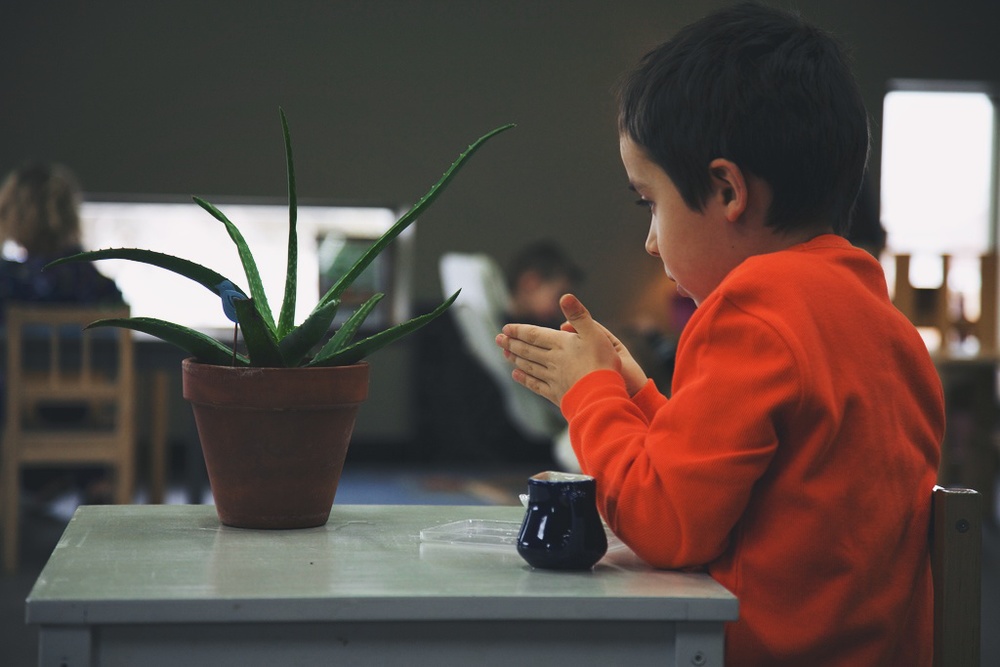
1. How will my child transition to public school?
In our experience, Montessori students are extremely adaptable. They thrive on new situations, primarily because they have strong foundations. Having come from an environment that encouraged social interactions and personal achievement, they are ready to meet new challenges. They are prepared, both academically and socially. Adjusting to a new system, however, no matter the circumstances, is always a process.
The point we would like to emphasize is that Montessori students develop a special characteristic: a life long love of learning. Why? Well, they’ve never been told what or when they need to learn. They’ve just been passionately following their interests. When they discover that they’ve been working on multiplication, for instance, they are proud of their achievement, but they’re also just as excited to keep on learning. No matter the task, or the level of difficulty, there are always ways to find joy and excitement. It’s also important to note that Montessori students know how to follow instructions. They, just as all children, only need an explanation for why they are supposed to be doing what an adult told them to do. A little explanation, goes a long way. In this case, we could say, “Told you so!”.

When hard pressed to answer the difficult and at times sensitive question, “Should my child leave Montessori and start Kindergarten instead in the public or private school system?”, “Will it be easier to adjust if we make the transition now?”, our answer is pretty straightforward: it depends on your family. Every family is different, having their own needs, expectations and questions. We’re merely here to help talk through these issues and support your decision. The last thing we want to do is to pressure, let alone tell, families what to do. Nothing could be further from the spirit of Montessori.
With that said, we believe that the greater the foundations the greater the success. Developmentally, we learn more in this window, from 0-6, than we do in the entire rest of our lives. In our estimations, it’s this period, the period Montessori recognized as essential, that will help pave the way. This is what leads Montessori to write, “There are many who hold, as I do, that the most important period of life is not the age of university studies, but the first one, the period from birth to the age of six.”
Kindergarten was originally created by Frobel to serve as a transition between home and school. It was implemented to help acclimate children and better prepare them for the start of their “real education”, which would begin in the first grade, at the age of seven. Montessori, however, recognizing the biological importance of the period 0-6, envisioned the Kindergarten year as arguably the most important, as it was the completion of a learning cycle – based on the developmental needs of children.
2. Are there any long term studies to validate Montessori?
We thought we would provide a short list of references that we’ve found to be helpful. For starters, we would recommend that you take a look at the videos of Dr. Steve Hughs, a board-certified pediatric neuropsychologist. There’s also a wonderful study on the Outcomes for Students in a Montessori Program, and a wonderful collection of essays that will help you get started.
We hope this post has been insightful. If you have any questions, please don’t hesitate to reach out. Your child’s teacher can also be a helpful resource in this important family decision.
Written by:
Baan Dek


